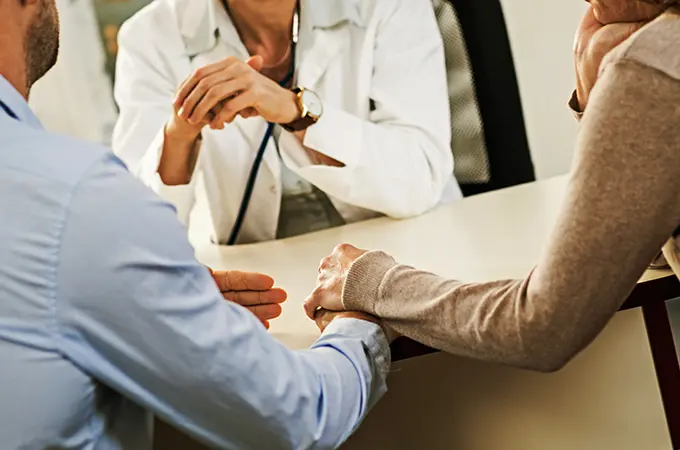
Even though 5 years seems like a short amount of time, a woman’s fertility after 35 is Typically, a pregnancy is considered high risk when a woman is over the age of 35 or of “advanced maternal age.” Shannon M. Clark, M.D., an obstetrician/gynecologist (OB/GYN) and high-risk-pregnancy expert, never imagined she would have fertility problems of her own. In the recent Washington Post article, “I’m a high-risk-pregnancy expert. So why didn’t I worry about my own fertility?” the 42-year-old physician describes her struggle to get pregnant after countless failed fertility treatments. Despite the number of women who successfully have children and start their family later in life, Clark reveals the hidden reality of how difficult it can be for women of advanced maternal age to conceive.
According to Clark and the Centers for Disease Control and Prevention (CDC): “the average age of first-time mothers in the United States rose from 24.9 in 2000 to 26.3 in 2014. While this is partially a result of a decline in births to teenage mothers, it’s also because the share of first births to women age 35 and over rose by 23 percent.”
“I was used to achieving my goals. Why would I fail at this?”
As a practicing OB/GYN, Clark describes her constant interactions with patients who are older mothers and older first-time mothers, who, despite being of “advanced maternal age,” are still having successful pregnancies.
“Like many of my patients, I was healthy, educated, had traveled the world, and was finally ready to settle down and pursue the next phase of my life,” recalls Dr. Clark. Not unlike many women, Clark claims to have been in denial after seeing so many women have successful pregnancies later in life both naturally and through fertility treatments, “I should have known better, and perhaps somewhere deep inside, I did. I just assumed I’d be one of them. I was used to achieving my goals. Why would I fail at this?” But after 2 years of trying multiple fertility treatment options, she realized that 40 was not the new 30 when it came to fertility.
Fertility after 35 Treatment Options
Forty percent of infertility is considered female infertility (the other 60 percent is from male factor , unknown, and combined male and female), and a large contributing factor of female infertility is the age of a woman’s eggs. Advanced age impacts both the quantity and quality of a woman’s eggs, which naturally decreases and declines with time. As eggs age, they also become more resistant to fertilization, resulting in lower pregnancy rates, and tend to have more frequent chromosomal abnormalities, such as Down syndrome, which makes miscarriages more likely.
While in vitro fertilization (IVF) and donor egg treatment are reliable and successful options, earlier diagnosis and treatment is better. No matter why pregnancy is delayed for women, their biological clock affects how many quality eggs are released in a woman’s ovaries, and the changes accelerate significantly around the age of 35. Clark encourages women who are waiting until later to attempt pregnancy to be mindful that there is no guarantee, even with advanced fertility treatments and despite promising success rates.
Egg Freezing Captures a Woman’s Current Fertility
Fertility after 35 is an even more complex situation for women who might not be in a relationship or ready to conceive (either naturally or through advanced fertility treatment). Women trying to beat the biological clock are limited with their options—either freeze eggs or wait. Luckily, more women are considering egg freezing as a proactive option. While menopause and premature ovarian failure can affect a woman’s supply, egg freezing helps ensure the possibility that women have a backup plan and can use their own eggs and have biological children when the timing is right.
At Shady Grove Fertility we know many women feel the pressure to beat their biological clock. Our Egg Freezing Program has demonstrated success in thawing frozen eggs, with strong survival, fertilization, and embryonic development, creating a reliable option for women who are concerned about the biological clock.
Clark leaves readers with this advice:
A child is a miracle. No one knows better than I just how true that statement is. Yet I urge women delaying childbearing for any reason to look beyond the headlines about maternal age. Yes, there are many women who get pregnant naturally later in life, and yes, there are many options for becoming pregnant through fertility treatments. But women need to be mindful that there is no guarantee. I never thought I would be a statistic, and I caution women on my path never to assume that their journey toward a family will be seamless. If having children is in your master plan, please consider your options early.
To learn more about fertility after 35 or egg freezing benefits, or for more information about Shady Grove Fertility’s exclusive egg freezing financial programs, call 1-877-411-9292 to speak with one of our New Patient Center Liaisons, fill out this form to schedule an appointment, or register for one of our upcoming patient educational events.


